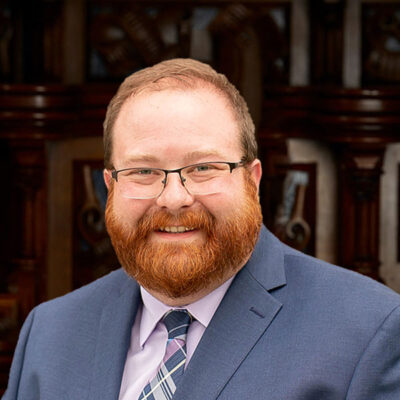Imago Dei – In The Image of God
 What a tremendous joy it is to return to you this weekend for the Saturday anticipatory Mass here at St. Francis Solanus and to bring with me, my formator, Fr. Fadi Auro, and my brother seminarians from Kenrick-Glennon Seminary, in their first year, known as the propaedeutic stage. These men come from a diverse range of backgrounds, some fresh out of college, some after a career. Some are converts to the faith while others are cradle Catholics or “reverts” to the faith.
What a tremendous joy it is to return to you this weekend for the Saturday anticipatory Mass here at St. Francis Solanus and to bring with me, my formator, Fr. Fadi Auro, and my brother seminarians from Kenrick-Glennon Seminary, in their first year, known as the propaedeutic stage. These men come from a diverse range of backgrounds, some fresh out of college, some after a career. Some are converts to the faith while others are cradle Catholics or “reverts” to the faith.
Each of these men share a common identity with you—they are sons of the Father. You are a son or daughter of the Father. You are fearfully and wonderfully made (Ps. 119:14) in the image and likeness of God, that is, Imago Dei (Genesis 1:27). God made you so he could love you. He loves all things that exist, hates nothing He has made, because if He hated it, He would not have made it (Wisdom 11:24).
These men are healing from a culture which thinks that man is not made good. If we were not made in goodness and love, then why would Jesus call us to be like little children (Matt. 18:3)? Indeed, we are born into original sin but this is not a sin which we have committed, rather it is a sin we inherit. At the baptismal font, we are freed from the sin of Adam and born again in water and spirit (John 3:5), a beautiful grafting onto the body of Christ, bringing us into His bride, the Church he established (Matt. 16:18).
Yet, we find ourselves desiring what is not actually good. We have poor eyesight so often to see the true good God desires for us. Our world today makes this more difficult. We live in a culture which both blatantly and subtly rejects the truth and the freedom Christ desires for us (Galatians 5). This is easier to say than to live for us. In our own families, we can desire to place what seems good above what is actually good. Parents can find themselves placing their kids before all else when we’re called to place God first (Matt 6:33). Jesus calls us to be childlike. He calls us to trust him with confidence. He calls us to be His. Do you desire to live in true freedom?
In this Sunday’s gospel, a trap is laid for Jesus. Is it right to pay taxes to Caesar? As Illinoisans I suspect we all have strong opinions on taxation but notice instead how Jesus responds. “Render unto Caesar what is Caesar’s and unto God what is God’s.” You’ve heard this before. I won’t bore you with talk of civic duty and obligations to support the Church.
Caesar, a pagan emperor of Rome, including Jerusalem, was actually pretty accommodating to the Jewish people. Remember Rome rebuilt the temple and despite being a pantheistic form of paganism, Rome allowed for the Jewish people to worship. This was very different from the occupation the Maccabees revolted against.
We owe what is owed in terms of the dignity of the lender. To the bank holding your mortgage, you owe repayment. To your spouse you owe fidelity. To your parents you owe respect. We owe different things to different people. Highest in dignity and surpassing any lender is God. We owe everything first and foremost to God. All creation exists because God loves. Even Caesar, a pagan, is loved by God— whether Caesar responded accordingly is debatable. Caesar had his face, his image, his likeness minted into the Roman coinage. Caesar, is made Imago Dei, made in the image and likeness of God. Caesar possesses dignity.
Are you responding accordingly to God’s dignity and His love for you? Or do you avoid Him like you avoid a bill in the mailbox?
God gives us everything including our own being. He doesn’t ask for gold or silver. He asks for our hearts. He calls us to be with Him. The sacraments certainly draw us into the relationship He desires with us.
Have you considered incorporating a regular holy hour into your day to spend with Jesus? Thanks be to God that here at St. Francis Solanus, the church is open throughout the day for you to come, sit, and rest in relationship with our Eucharistic Lord. Your parish even has the opportunity to be with Him more intimately in Eucharistic Adoration weekly. Would you give the Lord what is His—your very self? He wants you, woundedness and all.
Thomas Marten,
Seminarian Diocese of Springfield in Illinois
Kenrick-Glennon Seminary
5200 Glennon Drive
St. Louis, MO 63119
P.S.—Thank you all for the many kind notes, they mean a lot! Your prayers for me, my brother seminarians, and for the young men and women here discerning God’s will for them are most appreciated!
